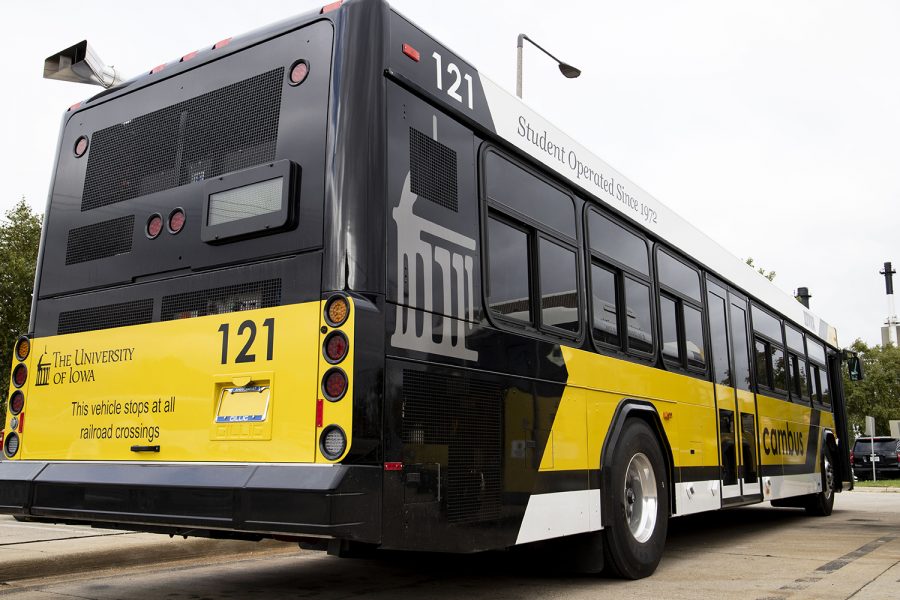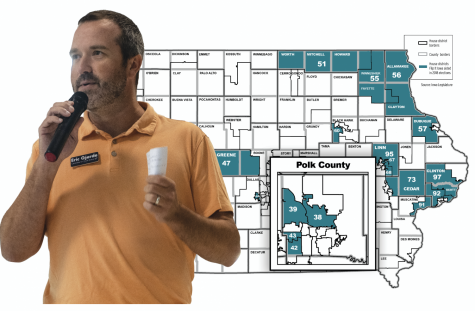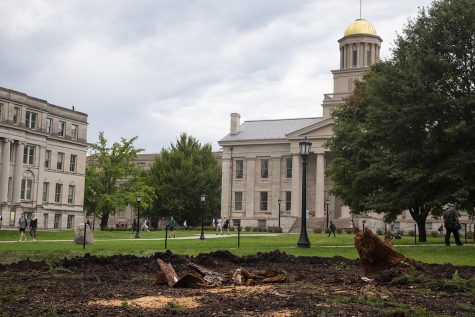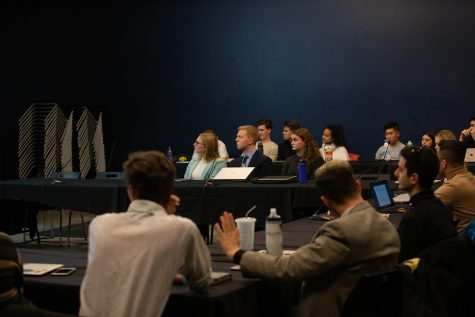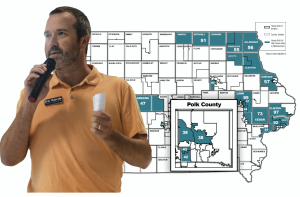Iowa City, Cambus, Coralville team up to study public transit
The Iowa City Area Transit study aims to improve the existing bus system and find ways to increase the number of residents utilizing public transit.
The new Cambus is seen at the Cambus Maintenance Facility on Friday, October 11, 2019. (Jenna Galligan/The Daily Iowan)
November 12, 2019
The Iowa City Climate Action Plan stresses the importance of getting cars off the road and encourages residents to make use of more sustainable forms of transportation, including public transit.
The new Iowa City Area Transit Study aims to provide recommendations to the city on how to improve service for residents and eventually increase ridership levels.
Coralville Transit and University of Iowa Cambus are also participating in the study.
The Iowa City City Council’s 2018-2019 Strategic Plan calls for a comprehensive assessment of the city’s transit system.
The recently adopted Climate Action Plan also calls for a 55-percent reduction in vehicular trips. Darian Nagle-Gamm, director of transportation for Iowa City, said the city plans to double ridership of public transit within the next 10 years.
“What we’re really trying to do at the end of the day is determine how we can make our transit system work better for the people that rely on it every day, but we’re also looking at how we can improve the system so that it serves the needs of a greater number of Iowa Citians,” she said.
Nagle-Gamm said Iowa City has the 17th highest public transit ridership per capita in the U.S., but drawing in new riders is still a goal of the transit study.
“We’re really aiming to make those daily trips better for people who currently rely on our system, but [also] how do we get more people to leave their car at home, or choose not to have a car, and can we make a system that people can rely on every day for transit?” Nagle-Gamm said.
RELATED: Three new Cambuses to begin service this month
At community meetings hosted on the UI campus and in Iowa City and Coralville this week, local citizens have the opportunity to provide input on what services they would like to see in Iowa City transit.
The study is being conducted by transit consulting firm Nelson\Nygaard.
The improved integration of the three local transit systems — Iowa City, Coralville, and UI Cambus — is a primary goal of the study.
Vicky Robrock, director of Parking and Transportation for Coralville, said that integrating bus passes between Iowa City and Coralville is hopefully on the horizon.
“Although a lot of our passes are accepted by either agency, we still do have some that are exclusive to one another, and that’s where some of the challenges seem to be,” she said.
Mia Brunelli, operations director for Cambus, said student input on the transit study is important to determine how to restructure transit services.
“We highly encourage students to come to meetings, take the surveys, and provide feedback on the proposals,” Brunelli said in an email to The Daily Iowan. “Student input about city transit services is also important if students would like to see changes in access via transit from off-campus housing locations.”
While Cambus does not have a specific set of proposed changes in place, Director Brian McClatchey said his team is approaching the survey with an open mind.
“We are looking forward to exploring the opportunities identified that could improve reliability, be more responsible to demand, and better coordinate with city public transit services,” McClatchey said in an email to The DI.
RELATED: Parking and Transportation to offer discounted 380 express rides for UI students and staff
Brunelli added that restructuring existing routes could be a consideration of the Cambus, depending on the results of the study.
“The campus has changed a lot in the last 10 years. Student travel patterns, as well as their expectations, have changed,” Brunelli said. “We want to make sure we understand those elements when considering service changes.”



